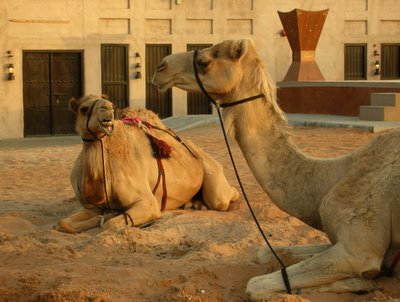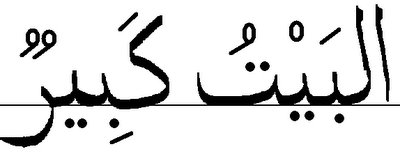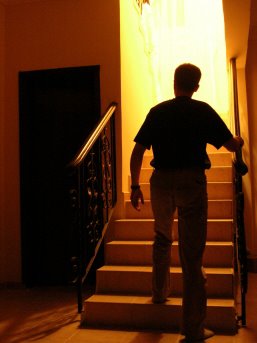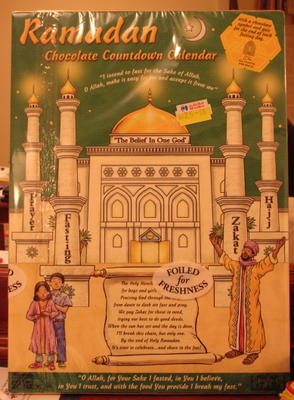How's your sense of direction? Do you happen to know offhand which way is north? Can you, right at this moment, point in the direction of the capital city of your country? How about the nearest McDonald's?
Having a sense of orientation can be a very secure feeling. It's hard to get lost when you know, "OK, the bay is that way, downtown is that way, and I can see the big hill just over there".
For Muslims, direction is something that they think of every day. Five times a day, for good Muslims.
A person who follows Islam and prays to Allah must always face a certain direction when they kneel. It's not a direction like on a compass, such as north by northwest. They must turn toward a place, a specific location on the earth.
"In which direction do we pray?"
"Kaaba/Qibla"
The Kaaba (also called the Qibla) is a building in Mecca in the country of Saudi Arabia. It is believed that this place of worship was built by Abraham and his son Ishmael, both considered prophets in Islam.
Now, as Abraham probably lived about 4000 years ago, you can imagine that the original building is no longer standing. In fact, it has been rebuilt several times. The current building is black and looks like a giant cube. You might have seen pictures of it.
No matter where on Earth they live, Muslims are required to face this building when they say their prayers.
The actual direction depends on which country they're in, of course. If someone is living in Syria, for example, they would have to pray almost due south. Someone in Libya would pray towards the east. In Oman, it's west and in Eritrea, it's north. How does a person know which direction it is?
In the prayer hall of every mosque there is something called a mihrab, a kind of niche in one wall. It's almost like a rounded little closet with a pointed top. In my imagination, it's a place where a soldier on duty would stand. (I've included a picture of the mihrab from the Sultan Qaboos Grand Mosque in Oman.) This niche always points in the direction of Mecca, so people pray towards it.
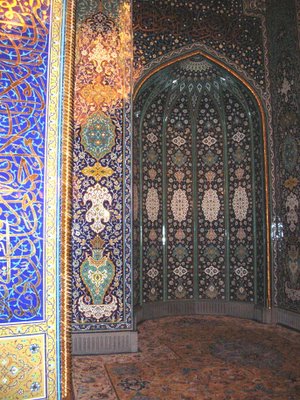
Once you've lived in a place for a while, you get to know the direction, even if you're not in a mosque. I was out for a walk one evening when I heard the sunset call to prayer. I saw a man in a dark robe crossing a big patch of desert near the highway. He stopped walking, turned back toward the setting sun, knelt and said his prayers, then continued on his way.
But sometimes you're not at home, you're off travelling to some strange place. I've been in hotel rooms where there's a sticker on the ceiling or on the desk that looks like an arrow. It's usually green (the colour of Islam) and says "Qibla" on it. So even in this unfamiliar country, a Muslim will know where Mecca is.
The best of all is the high-tech Islamic navigation system. Have you ever been on a nice, new airplane that has large display screens providing information to the passengers? Often they will provide things like the speed of the plane, the air temperature outside or maybe a map to see how far you've travelled. On some Middle Eastern airlines, they will show you a direction arrow pointing toward Mecca, which will change as the plane continues on it's journey!



